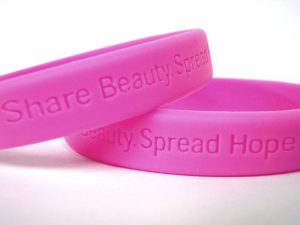Anorexia Nervosa Associated With Lower Risk Of Invasive Breast Cancer
 A new study review by researchers at the European Institute of Oncology in Milan, Italy has determined that women with restricted calorie intake due to anorexia nervosa have a lower risk of developing breast cancer.
A new study review by researchers at the European Institute of Oncology in Milan, Italy has determined that women with restricted calorie intake due to anorexia nervosa have a lower risk of developing breast cancer.
While these results in no way suggest that anorexia nervosa is a beneficial treatment for breast cancer, the devastating eating disorder has provided a means to isolate data from a certain population of women in order to study the impact of severe calorie restriction on invasive breast cancer.
Invasive breast cancer risk lowered in women with restrictive calorie intake
The study itself led by Karin B. Michels was recently published in the Journal of the American Medical Association. The researcher and her colleagues analysed data from 7,303 Swedish women who were hospitalized before the age of 40 due to anorexia nervosa.
Compared to the general Swedish population, the women who were treated for anorexia nervosa before the age of 40 were 53 percent less likely to develop fatal breast cancer. Women who had never had children and suffered from anorexia were 23 percent less likely to get breast cancer, and women who had given birth one or more times who had anorexia were 76 percent less likely to experience the deadly cancer.
Restricting calories results in a variety of protective measures in the fight against breast cancer
The researchers believe that restricting calories produces a variety of protective measures against invasive breast cancer including lowering insulin levels, decreasing rates of cellular growth, and increasing the manifestation of tumor suppressing genes. The gains were most pronounced for childbearing women who had severely restricted their calorie intake due to anorexia.
Due to the serious nature of eating disorders, and the harmful effects of anorexia nervosa, researchers do not suggest that women severely restrict their calorie consumption in order to protect themselves from breast cancer. A variety of approaches are recommended including avoiding gaining excess weight, decreasing exposure to medical radiation when possible, and utilizing hormone replacement therapy.
Source: Foodconsumer.org
 Eating Disorder Self Test. Take the EAT-26 self test to see if you might have eating disorder symptoms that might require professional evaluation. All answers are confidential.
Eating Disorder Self Test. Take the EAT-26 self test to see if you might have eating disorder symptoms that might require professional evaluation. All answers are confidential.